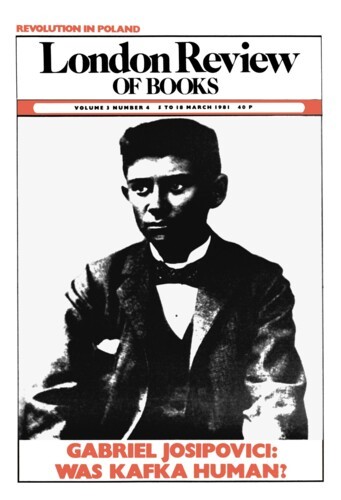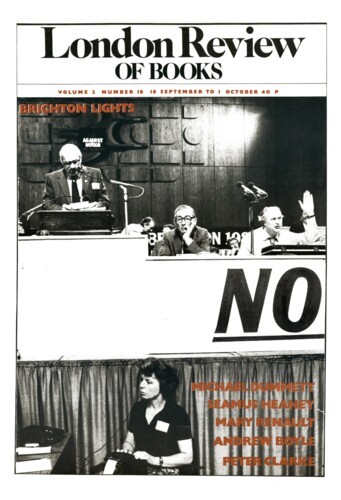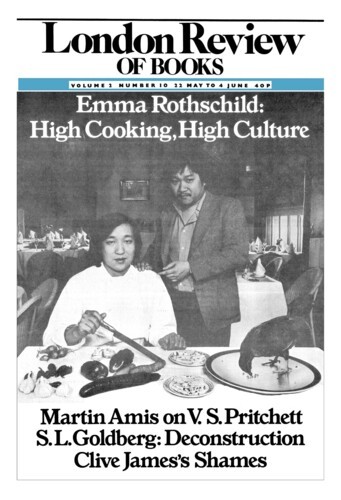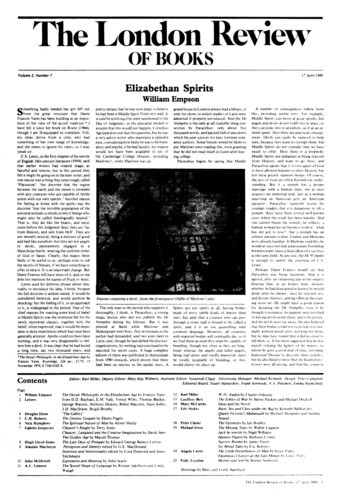History’s Revenges
Peter Clarke, 5 March 1981
It is doubly true these days that the experts are the last people we can rely on. We rely on them because the compartmentalisation of knowledge in every field means that they are the only guides left. The last people, however, because they have retreated into their specialised enclaves, content to communicate with each other rather than a lay public. It never was any use putting a mathematician on the spot for a nimble piece of mental arithmetic. Likewise, if you want to know the time, the day is long gone when you could ask a policeman. We have now reached the stage when it is impossible to get a straight answer out of so humble a practitioner as a historian. ‘Not my period’ has become proverbial as an attempt to pass off ignorance as professionalism. So where can we get the facts? Historians are voracious consumers of reference works and it is wholesome that they should occasionally produce volumes like these, serving common needs in an unpretentious way.




